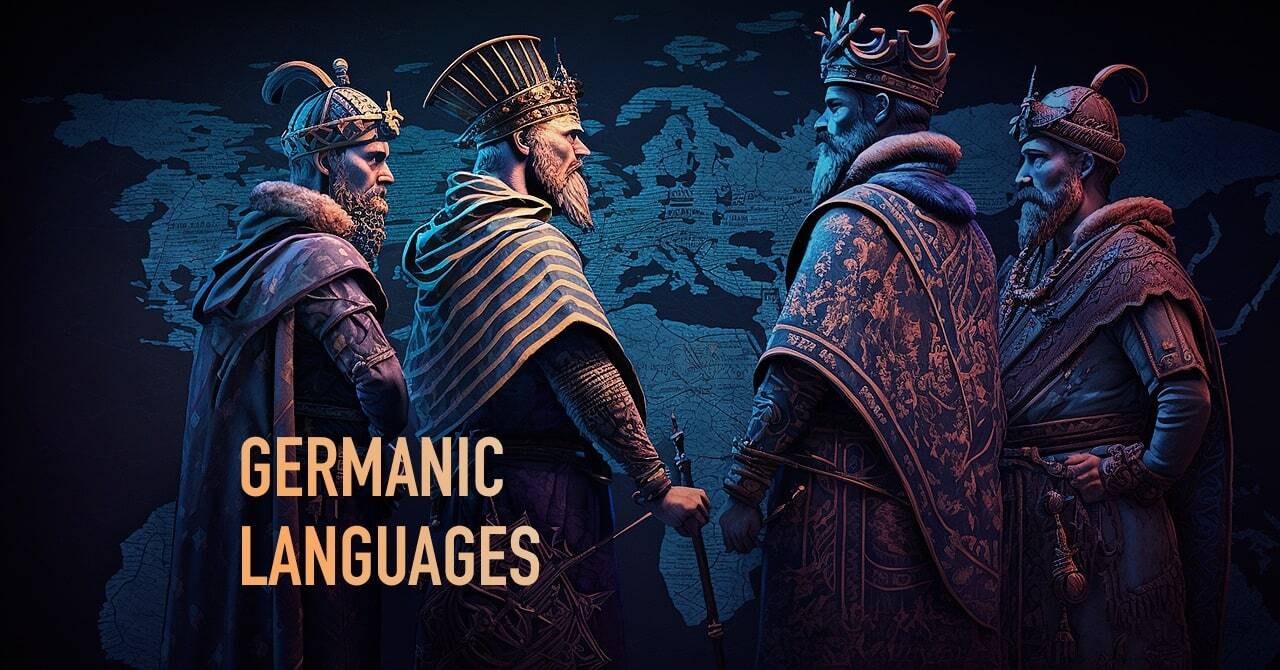
Learn About Germanic Languages and Their Speakers
All languages belong to a language family, and these families are recorded to have existed as far back as 6000 years ago. And one such language family is the Germanic language family.
There is hardly a conversation about languages without the language families being mentioned. This is because all languages as we now know them were not like that from the start.
They were either derived from other major languages or modified with time to what we now recognize and accept. Whichever way, it is clear that languages have always found a way to evolve with time.
All languages belong to a language family, and these families are recorded to have existed as far back as 6000 years ago. And one such language family is the Germanic language family.
The Germanic languages are known for their widespread worldwide, and we will be looking at the languages that belong to this family and how many people speak them.
The origin of Germanic languages
Germanic languages are recorded to date back to the ca.500 BCE. Once a part of the mother language—Proto-Germanic—was spoken until the 5th century CE when the languages split into different branches.
It is thought that the elements of Grimm’s Law and Verner’s Law came together to form Germanic languages at some point during the Pre-Roman Iron Age, as early as 500 BC. A lot is not known of the history of Germanic languages due to sparse evidence of runic inscriptions relating to its three (west, east, and north) groups. The eastern group is believed to have originated in the first era of Gotland, whereas the western group is believed to have originated in the late Jastorf civilization. The northern group is traced to the southern part of Sweden.
What are the Germanic languages?
Today’s Germanic languages have roots in Europe, North America, Oceania, and Southern Africa and are a branch of the Indo-European language family.
No doubt, the first thing that comes to mind when the topic of Germanic languages comes up is the German language. Although there is a relationship, it is not exactly correct as the Germanic languages tree consists of the German languages and their dialects and other languages as well.
Now the question becomes, what languages are Germanic? It is important to note that the languages share similarities. This makes them quite easy to learn, especially if you are a fluent speaker of one of its biggest languages – English.
This is because the Germanic language family uses the same alphabet and shares similar words and sentence structure. They also frequently use the same words to identify the same things.
Branches of the Germanic languages include:
The West Germanic languages
This is the largest of the three groups, with nearly 500 million native speakers. This group owes its numbers to individual languages with massive native speakers as this group includes the three most spoken languages in the world – English, German, and Dutch.
The languages in the West Germanic group
- English
- Yiddish
- Frisian
- German
- Scots
- Dutch
- Afrikaans
Paying attention to the numbers, English language being the third most spoken language in the world, has 450 million native speakers, German follows behind with 130 million native speakers, Dutch with 23 million, Afrikaans with 7.2 million, Yiddish with 1.5 million, Frisian with 400,000 and lastly, the Scots with 5700 native speakers.
The East Germanic languages
Languages of the east group are extinct languages. However, they are an important part of history and cannot be pushed aside.
- Burgundian
- Gothic
- Vandalic
Gothic was the most used for communication and hence the most long-lived of all three before its extinction in the late 18th century.
The North Germanic languages
The languages in this group are still spoken by around 20 million native speakers, with Danish, Swedish, Norwegian, and Danish leading the way. They are also called Nordic or Scandinavian languages.
- Danish
- Faroese
- Icelandic
- Swedish
- Norwegian
Conclusion
Germanic languages have come a long way through history. With some going extinct and most finding their way to evolve and remain a part of the modern world, culture being spoken by millions of people is quite the feat.
Hello! I am Moses, an expert content writer, editor, and copywriter. I have a Master's degree in journalism, media studies, and communication. I enjoy creating content.

